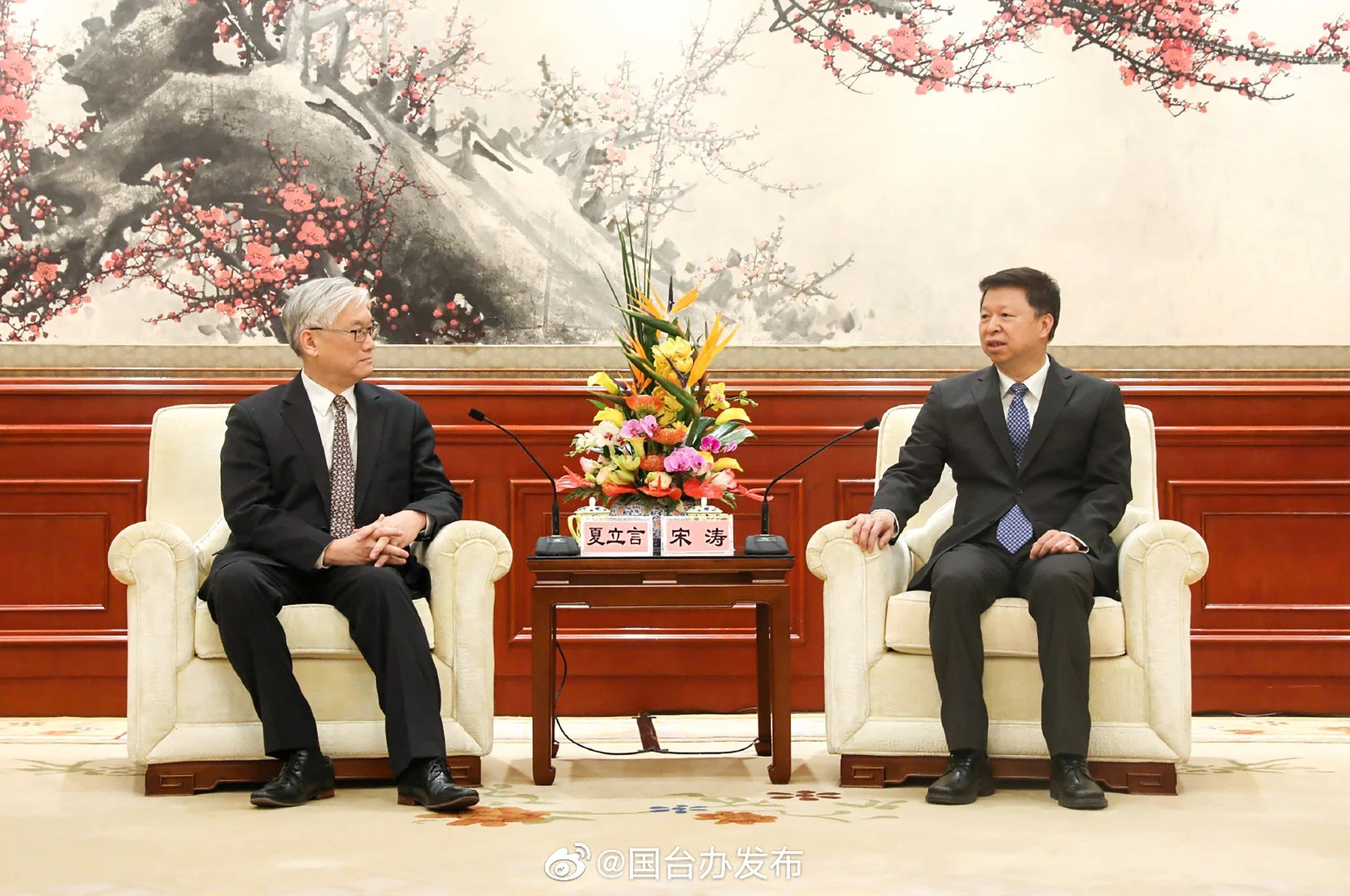On Sunday, a delegation from Taiwan’s current opposition party, the Kuomintang (KMT), returned from a 10-day trip to China where they spoke with high-ranking officials in the Chinese Communist Party about cross-strait relations, which are currently very high.
Presidential elections are to be held next year, and the KMT who have always maintained better relations with Beijing than their opposition in power, the Democratic People’s Party (DPP), believe that softening the tensions, increasing trade, and reiterating mutual commitments amid “unease” in Taiwan will be a winning strategy.
It’s ironic since the Kuomintang were the opponents of the CCP in the civil war which created Taiwan. The KMT lost and their remaining organization fled there to escape the victorious CCP, who transformed the country into what it is today.
KMT Vice Chairman Andrew Hsia faced criticism from the DPP who said the visit “sends the wrong message to the US and other countries that many Taiwanese want to be ruled by China”.
Analysts believe it was savvy politics from the KMT for several reasons. The first is the obvious parallel danger between the war in Ukraine and a potential war over Taiwan, whereby Russia and later China invade their smaller neighbor rather than seeing it align itself too closely with the US.
The second is the record number of entrances of Chinese warplanes into Taiwan airspace last year, and the third is the recent extension of mandatory military service from 4 months to 1 year. All these lend themselves to the idea that the country is soon to suffer a devastating war.
“Public opinion is on the move as seen in the last two local elections,” said Liu Fukuo, a professor and research fellow at the Institute of International Relations at Taiwan’s National Chengchi University, referring to recent local election victories for the KMT in 2018 and 2022.
Liu told Al Jazeera that last year’s ”Fourth Strait Crisis” and the DPP’s response to it left younger voters “shaken”. The majority of Taiwan’s older population still feels an affinity with mainland China, and are routine KMT voters.
“The government has made a number of quite serious mistakes which have already shaken the support of the younger generation. Last year after the missile crisis the younger generation understands that if we don’t improve things with China, Taiwan will be preparing for war,” he said.
“Nobody wants war”
Last month, national security airwaves were abuzz with news that war games done by the Center for Strategic and International Studies, a large and influential think tank in DC found a Chinese invasion of Taiwan could be repelled by a combination of US, Japanese, and Taiwanese forces, but US losses were shocking, and the nation of Taiwan was utterly devastated.
“Both sides know very well that Beijing and Taipei have different policies and positions. However, we were there to have dialogue, not pick fights. We held our ground and we believe that both sides can pursue consensus on issues, despite their differences,” said Vice Chairman Hsia yesterday.
Hsia’s opponents in the DPP as well as analysts have said their engagement with CCP leaders like the Politburo Standing Committee member Wang Huning, and Taiwan Affairs Office Director Song Tao, was Beijing’s attempts to influence Taiwanese elections by pandering to the out-party.
Hsia disagreed, saying “people paid close attention to the delegation’s visit because nobody wants war”.
“As an opposition party, the KMT has neither the political authority nor the means to engage in formal negotiations with China. We can only find ways to secure more benefits for Taiwanese and make Taiwan a safer place,” he added.
Key to Hsia’s belief that his party can secure said benefits is by maintaining the “1992 consensus” which states that there is only one country and people called China, but that the KMT and the CCP disagree peacefully about what “China” is and means.
Further analysts believe that the KMT’s fortunes in the 2024 elections are mostly based on “crisis fatigue,” similar to what affected American voters in the US 2020 elections, when a vote for Biden was perceived as a vote for a return to normalcy.
With East Asia just now freeing their citizens from COVID-19 protocols, coupled with the tension of Nancy Pelosi’s visit to the country, the four separate instances of Joe Biden saying the US would militarily defend Taiwan, major media companies constantly making comparisons between the War in Ukraine and a potential war with China, and the Fourth Straits Crisis, the Taiwanese may want things just to simmer down, especially since flights to the mainland continue to operate, and loved ones will be keen on reuniting. WaL
PICTURED ABOVE: The KMT’s Andrew Hsia, left, and Taiwan Affairs Office Director Song Tao (right), pictured ahead of the closed-door meeting at Diaoyutai State Guesthouse. PC: Weibo
If you think the stories you’ve just read were worth a few dollars, consider donating here to our modest $500-a-year administration costs.



